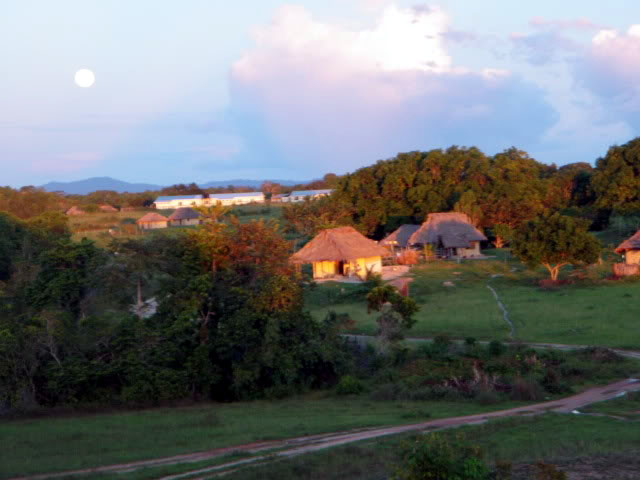The Center works to ensure that climate change-related policies respect the rights of indigenous peoples.
♦♦ What's New ♦♦
New comments from the Center on various REDD+ proposals by the World Bank and UN-REDD
World Bank Forest Carbon Partnership Facility R-Package Assessment Framework, February 2013
(click here for a full list and links to all of the Center's comments)
UN-REDD Programme Draft Principles and Criteria and Benefit and Risk Assessment Tool, January 2012
UN-REDD Programme Draft Free, Prior and Informed Consent (FPIC) Guidelines, January 2012
♦♦--♦♦♦--♦♦--♦♦♦--♦♦--♦♦♦--♦♦--♦♦♦--♦♦--♦♦♦--♦♦--♦♦♦--♦♦--♦♦♦--♦♦--♦♦♦--♦♦--♦♦♦--♦♦--♦♦♦--♦♦--♦♦♦--♦♦--♦♦♦--♦♦--♦♦♦--♦♦
Indigenous lands threatened in Ecuador
In its progress report to the UN-REDD Programme, Ecuador did not mention a new round of petroleum concessions that would open up close to 3 million hectares of indigenous peoples’ ancestral territory to oil and gas development, including lands engaged in REDD projects. Leaders of the Shuar, Achuar, Shiwiar, Sápara and Kichwa people have rejected any presence of petroleum activities on their territories, citing the threat this brings to their rights and environmental and cultural integrity. (More...)
♦♦--♦♦♦--♦♦--♦♦♦--♦♦--♦♦♦--♦♦--♦♦♦--♦♦--♦♦♦--♦♦--♦♦♦--♦♦--♦♦♦--♦♦--♦♦♦--♦♦--♦♦♦--♦♦--♦♦♦--♦♦--♦♦♦--♦♦--♦♦♦--♦♦--♦♦♦--♦♦
Center Releases International Law Principles for REDD+
 Wapichan village of Isherton, South Rupununi Wapichan village of Isherton, South Rupununi(Region 9), Guyana |
“Reducing Emissions from Deforestation and Forest Degradation” (REDD+) initiatives have been proposed as a means of combating climate change, while at the same time providing development opportunities for developing countries, indigenous peoples, and other communities who possess forested lands. For indigenous peoples and other forest communities, however, REDD+, poses significant risks. In order to reorient REDD+ to respect the rights of indigenous peoples and address substantial risks to their livelihoods and ways of life, the Indian Law Resource Center proposes the International Law Principles for REDD+: The Rights of Indigenous Peoples and the Legal Obligations of REDD+ Actors
The REDD+ Principles identify a pathway to implement a human rights-based approach to development within REDD+ initiatives. The goal of the REDD+ Principles is to educate actors engaged in REDD+ and indigenous communities potentially affected by REDD+, regarding the human rights implications of these initiatives. For States and international agencies engaged in REDD+, the REDD+ Principles identify both the applicable international legal obligations and the rights of indigenous peoples that must be protected.
Please let us know what you think! The REDD+ Principles are put forth as a draft for discussion and improvement. We look forward to comments, suggestions, and alternative drafts. Please direct feedback to dcoffice@indianlaw.org or fill out our brief SURVEY.
♦♦--♦♦♦--♦♦--♦♦♦--♦♦--♦♦♦--♦♦--♦♦♦--♦♦--♦♦♦--♦♦--♦♦♦--♦♦--♦♦♦--♦♦--♦♦♦--♦♦--♦♦♦--♦♦--♦♦♦--♦♦--♦♦♦--♦♦--♦♦♦--♦♦--♦♦♦--♦♦
Read the Center's Comments and recommendations on the following REDD+ Policy Proposals:
World Bank Forest Carbon Partnership Facility R-Package Assessment Framework, February 2013
UN-REDD Programme Draft Principles and Criteria and Benefit and Risk Assessment Tool, January 2012
UN-REDD Programme Draft Free, Prior and Informed Consent (FPIC) Guidelines, January 2012
♦♦--♦♦♦--♦♦--♦♦♦--♦♦--♦♦♦--♦♦--♦♦♦--♦♦--♦♦♦--♦♦--♦♦♦--♦♦--♦♦♦--♦♦--♦♦♦--♦♦--♦♦♦--♦♦--♦♦♦--♦♦--♦♦♦--♦♦--♦♦♦--♦♦--♦♦♦--♦♦

